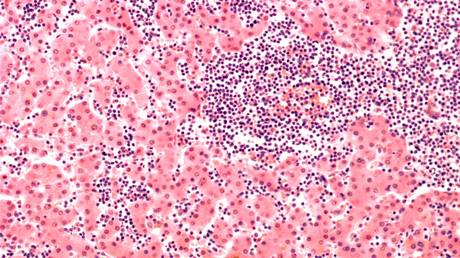
An early trial of a special cell therapy eradicated cancer in a pair of patients treated more than 10 years ago, new research shows
Two cancer patients treated with an innovative gene therapy were confirmed to be in remission after more than 10 years, according to a new study, prompting its lead researcher to declare that a “cure” for some forms of the disease could be on the horizon.
A study published in Nature on Wednesday said that the two chronic lymphocytic leukemia patients are now free of cancer, more than a decade after taking part in an early trial for the CAR T-cell treatment, which alters genes in the body’s immune system to target cancer cells.
“CAR T-cells remained detectable more than ten years after infusion, with sustained remission in both patients,” the study said, noting that the participants “achieved a complete remission” after initially receiving the therapy during the 2010 trial.
Carl June, the top researcher on the trial and a co-author in the Nature report, told the New York Times that while his team expected the T-cells to be gone from the patients’ systems “in a month or two,” the anti-cancer response endured for much longer.
“Now we can finally say the word ‘cure’ with CAR T-cells,” he added.
T-cells are a form of white blood cell that play a major role in the human immune system, helping to fight off cancer cells, viruses, bacteria and other pathogens. During cancer, however, patients often see a significant decline in their immune response, which the CAR T-cell therapy aims to reverse through the alteration of genes.
While the therapy has received approval from the Food and Drug Administration (FDA), it is reserved for patients who have not had success with at least two other types of standard treatment. According to the Times, CAR T-cells can also result in serious side effects, including high fever, coma and even death, and have not been found to be effective against solid cancerous tumors.
READ MORE: P&G recalls hair products over grave health risk
Nonetheless, with patients seemingly cured of their leukemia long-term, new interest has been piqued in the treatment, which could offer a promising option for certain forms of cancer.
“I’m doing great right now. I’m still very active. I was running half marathons until 2018. This is a cure, and they don’t use the word lightly,” Doug Olson, one of the participants in the trial, now 75-years-old, told the Associated Press.




